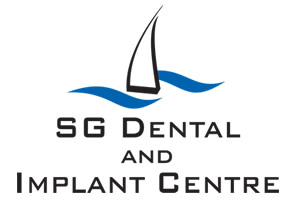Preventing Decay Between Your Teeth
This is a common area for cavities to form. Burton dentist Peter Reece offers advice on how to avoid it.
Tooth decay is one of the most common dental problems that we see at our practice. It can be caused by a combination of factors including poor teeth cleaning and poor diet. It can occur on any of your teeth, although it is more common on those at the rear which some find more difficult to keep clean.
When it does occur, fillings, including white, cosmetic versions, are available at Mike Allen’s Dental Practice here in Burton to restore the tooth. Given that decay is largely a preventable issue though, we would prefer not to have to do this as often as we do.
Below, we offer some advice to our Burton patients to help them eliminate, or at least reduce, the need for fillings for tooth decay. Whilst this is general advice, it does include specifics about decay that starts between the teeth, which is common but very preventable.
Mind what you eat and drink
This is standard dental advice but always worth repeating. What you put into your mouth will have an effect on your teeth and gums. If you have a diet that is high in sugars then the risk of tooth decay is quite high. Chewy and sticky sugary foods especially can become stuck to the teeth and remain there for long periods of time. Remember that there are lots of sugars in savory foods too.
Eaten in excess, acidic foods, including ‘healthy’ foods such as citric fruits will also wear away the enamel on your teeth, making them more vulnerable to tooth decay. One way to counter this, to some degree, is to finish each meal with a small amount of cheese as this helps to neutralise the acid and provide a more balanced PH level in your mouth. Clearly this isn’t always practical, but it’s an interesting and potentially useful food fact nonetheless.
Try to avoid fizzy sugary drinks altogether. If you must drink them, try to do so through a straw so that tooth harming liquid bypasses the front teeth entirely. Sugar-free alternatives are now widely available.
Brush your teeth well
Brushing your teeth is good, but brushing them well is even better. You can look to improve the way that you brush by making sure that the brush, or brush head, is not worn and hence less effective. Generally, these should be changed every 3 months or so. Don’t brush with the bristles flat on your teeth, but angle the bristles so that they can get beneath the gum line to remove food and bacteria from there. Finally, always use a toothpaste that contains fluoride, and spit but don’t rinse after cleaning your teeth. This allows the fluoride to have more time to strengthen the enamel.
Use dental floss
As mentioned earlier, one of the common places for decay to occur is between the teeth. This applies whether it is the rear or the more visible front teeth. Whilst brushing will help to remove some of the sugars and bacteria that can contribute to decay, the bristles are simply incapable of removing them all. The best way to do this is to use dental floss but we are only too aware that far too many people fail to do this simple task on a daily basis. There is no real excuse not to floss and adding this to your daily regimen can make a real difference to your oral health. Flossing will help to reduce the incidence of decay between the teeth and also help to prevent gum disease too.
Some people do find it a little difficult to do, but our Burton dental hygienist will happily demonstrate how you can do this with relative ease. We also recommend that you use this opportunity to have your teeth professionally cleaned (scale and polish). This non invasive procedure will help to remove tartar from between the teeth, removing the rough deposits on the surface that attract more bacteria.
Crowded or overlapping teeth
Finally, straight and even teeth are much easier to clean than teeth that are crooked, crowded or overlapping. If your teeth are pressed lightly together or overlap each other, it can be difficult to even get something as small as dental floss in between them. This space will still allow bacteria to enter though with decay likely to follow. Modern orthodontics (braces) are an effective way of ensuring that your teeth are straight and even and we are always happy to discuss the most appropriate system for your own situation. Straight teeth don’t just look good, they are often healthier too!
Regular dental care at home is important, as is seeing your Burton dentist on a regular basis so that your teeth and gums can be monitored, and any necessary treatment delivered during the early stages of a problem. If you would like to arrange an appointment to see a dentist or hygienist at Mike Allen’s Dental Practice, please call us on 01283 845345.
Peter Reece – Associate Dentist – GDC 59019
